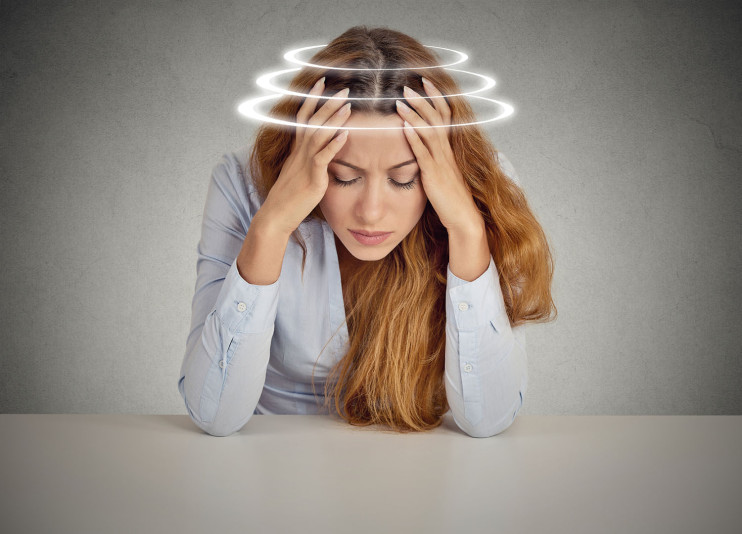There are various causes for dizziness such as standing up too fast if you have low blood pressure and side effects from prescription medications, but the most common cause of dizziness is a problem in the inner ear. What you may not know is that TMJ (Temporo-mandibular Joint) disorder may cause inner ear inflammation that can result in dizziness.
Connecting TMJ disorder and dizziness
Within the middle ear lies the vestibular apparatus that helps maintain your balance. The vestibular apparatus provides sensory information about spatial orientation, equilibrium, and motion. The jaw joint is located in close proximity to the vestibular apparatus and those with TMJ disorder experience symptoms such as migraines, painful chewing, jaw clicking and popping, earaches and dizziness. The jaw misalignment that results from TMJ disorder triggers inflammation of the ligaments and muscles of the middle ear, which causes earaches, affects balance and leads to dizziness.
Dealing with dizziness
While there are methods to resolve TMJ-related symptoms including dizziness, until you find the proper treatment, it’s vital that you remain safe during any dizzy spells. When you start to feel dizzy, stop what you’re doing if possible and lie down. If you’re in a situation where you can’t lie down, take deep breaths to help relax the muscles of the mouth and face. Try to focus on a fixed point for several minutes as this sends signals to your brain that can help you stabilize your balance.
Treatments for TMJ disorder
There are many effective treatments for TMJ disorder that you can discuss with your dental professional. Depending on the severity of the TMJ disorder, options can range from minor tooth reshaping that corrects misalignment to rebalancing the bite with crowns on certain teeth. Orthodontic treatments are another solution as are oral appliances called occlusal guards, bite guards or night guards worn while you’re sleeping. It’s important to treat TMJ disorder promptly, not just to alleviate dizziness and other middle ear problems, but because it can cause permanent damage to your smile if you’re grinding your teeth due to the disorder.
TMJ disorder doesn’t disappear on its own. Treatment is required to resolve the condition and alleviate the symptoms. Discussing your particular symptoms with your dentist and having a thorough exam can help you decide on the best course of treatment for your specific TMJ disorder issues. Don’t suffer dizziness or other TMJ disorder symptoms any longer. Contact our offices to set up your appointment today.

